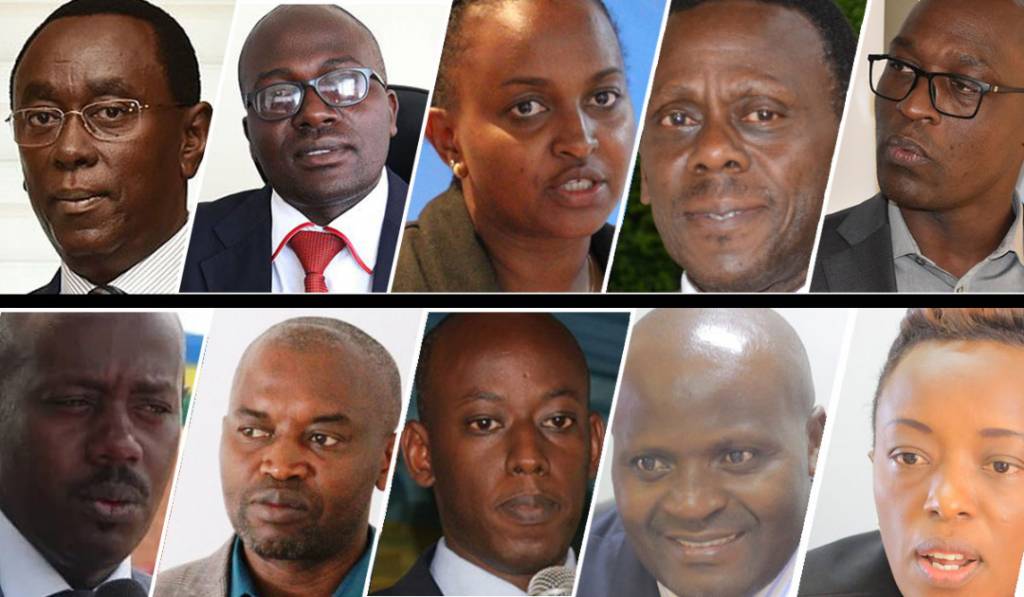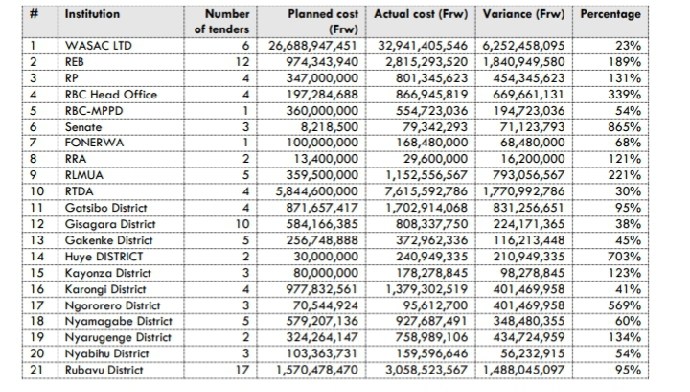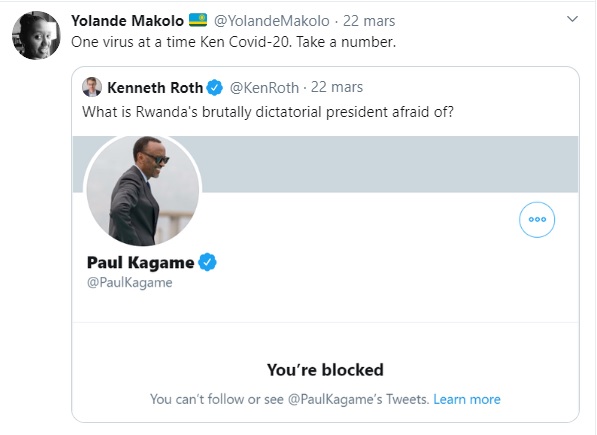Hutu-Tutsi ikibazo kitavugwa kirunduye Rayon-Sports (Igice Cya Kabiri)
Yanditswe na Frank Steven Ruta
Mu rugamba Perezida wa Rayon Sports Munyakazi Sadate yarwanaga rwo kuzahura Rayon Sports ngo inabashe kwitunga idategereje ak'imuhana, yegereye na MTN bagirana amasezerano y'imikoranire, abamurwanyaga bahita bamuca inyuma bajya kumugambanira muri AIRTEL, ngo arashaka no kwamamaza mukeba wayo. Iyo gahunda ntiyabashije gukomeza.
Munyakazi Sadate yatangije gahunda yo gukorana na Stasiyo za essence zimwe na zimwe, abafana ba Rayon bakaziyoboka, buri kiguzi (purchase) bakoze hakagira akantu gato kagenerwa Rayon Sports. Iyi ghunda yanayikoze kuri za alimentations (Supermarkets) zimwe na zimwe, ariko ba banyemali bamwogaga runono, bagaca inyuma bakamwangiriza imishinga, igapfira mu igi.
Nyuma y'aho habayeho akagambane kagizwemo uruhare na ba bandi bo muri Rayon bagomba kwimakaza ihame ry'iyimikabwoko, bibukije FERWAFA ko hari aho yakimbiranye na Sadate ko babizamuye bakamufatira ibihano byabafasha gusubiza ikipe yabo ku murongo bifuza. FERWAFA yarabyubahirije, yica procedures z'amategeko ikurikirana Munyakazi SADATE inamufatira ibihano, we n'umuvugizi wa Rayon Sport.
Iri tsinda ry'abanyemali b'abahezanguni baje gutungurana ubwo kuwa 10/05/2020 bakoze inama bise iyo gutabara Rayon Sport, bayikorera mu rugo rw'umwe muri bo (Kwa Muvunyi Paul). Iyi nama niyo yatangaje ko aba bagabo bahoze bayobora Rayon Sport baje kuyitabara mu bihe by'amage irimo, bakaba bariyise Akanama Ngishwanama kaje gukorana na Komite iriho ngo ibibazo bikemuke. Banikoze ku mufuka bakusanya asaga miliyoni 20 yo kunganira ngo bigaragare ko badahagurutse imbokoboko.
Sadate Munyakazi ntiyabashize amakenga, akurikije ukuntu biyise akanama ngishwanama, ariko bakaba bari gufata ibyemezo bitari mu nshingano zabo.
Uruganda rwa SKOL rwemereye aka kanama kurekura amafaranga miliyoni 33 z'ikirarane bari bafitiye Rayons Sports. SKOL yanahaye ubufasha bw'inyunganizi abakinnyi ba Rayon Sports, ariko aba bagabo bumvikana na SKOL ko nta kintu na kimwe uru ruganda rugomba gukorana na Prezida wa Rayon Sports Munyakazi Sadate na Komite ayoboye.
Dusubiye inyuma gato, aba banyemali baje gushinga icyo bise Umuryango wa Rayon Sports , biyandikisha muri Statuts zayo nka ba Nyirawo bahoraho. Nyuma yo kubikora bashatse gushinga RAYON Sports Basket Club, Munyakazi arabyanga kuko yavugaga ko byaba bije kugabanya imbaraga zigomba guhabwa ikipe ya Football.
Mu cyumweru gishize, aka kanama kandikiye Munyakazi Sadate kamusaba kwegura abitera utwatsi, ababwira ko umweguza batabifite mu nshingano, nabo bamutumaho abamubwira ko n'ubundi ntaho agihagaze ko n'ubuyobozi bamaze kubushyikira.
Ku wa gatandatu tariki ya 23/05/2020 bakoze indi nama, ikaba yari inarimo umuhezanguni Albert Bryon Rudatsimburwa (wigeze kuyobora Rayon Sports mu gihe cy'umwaka umwe), inama bemeza ko Sadate Munyakazi agomba kwirukanwa. Amakuru yamugezeho asanga ahita atangira gukusanya ibimenyetso n'amakuru yashyize mu rwandiko yoherereje Perezida wa Repubulika, ejo ku wa mbere tariki ya 25/05/2020.. Albert Rudatsimburwa akiva mu nama yo kuwa Gatandatu, yatangiye kwasasa ko usanzwe ayobora Rayon Sports (Munyakazi Sadate) ari umusazi.
Urwandiko rurerure rurimo byinshi bisanzwe bivugirwa mu matamatama, rugisohoka nibwo Ngarambe Charles umwe mu bagize ka kanama ngishwanama kishyizeho yanditse urwandiko rutagira ibirango na cachet by'ikipe, avuga ko ahagaritse Komite yose isanzwe iyobora RAYON Sports.
Nyuma ya saa sita (ejo kuwa mbere) hasahotse inyandiko y'umujyi wa Kigali yemerera Rayon Sport guteranya inama, nyamara iyo nama ntiyari ihari, yari yarabaye ku wa gatandatu. Urwandiko rwari urwo kurangiza umuhango. Ikimenyimenyi ni ukuba urwandiko rubemerera gukora inama rwarasohotse bo bamaze gusohora urwandiko rw'imyanzuro yavuzye muri iyo nama baringa bavugaga bari bukore, nyamara itari yakozwe, ahubwo yari yararangiye k uwa gatandatu.
Impaka zikomeje kuba zose ku mbuga nkoranyambaga no ku ma Radio, hagati y'impande ebyiri zitumva kimwe ibibazo Rayon Sports irimo muri iyi minsi.
Ibigaragaza ko izi gahunda zose zihagarikiwe n'izindi mbaraga zibyihishe inyuma
Kuba abantu bake bahura bagakora inama cyangwa ikindi gikorwa muri iyi minsi ya Covid-19 bagakurikiranwa, ariko ba basaza bayoboye Rayon Sports bakayikora ubugira gatatu baterana bitemewe, barangiza bakamamaza mu bitangazamakuru ko bakoze inama, ni gihamya ko ibyo bakoraga babishyigikiwemo .
Kuba umujyi wa Kigali warandikiwe n'abashimuse ubuyobozi ukabasubiza ubaha uburenganzira bwo gukora inama itagenzuye niba bagize urwego ruzwi kandi rwemewe n'amategeko, nabyo birashimangira ko ibiri gukorwa byose ari ikinamico yo kurangiza umuhango, ko Sadate we yamaze kurundurwa.
Ku bijyanye n'ivanguramoko twagarutseho muri iyi nyandiko, nta na hamwe Munyakazi Sadate avugwa yigeze yumvikana ashishikariza abantu kuvangura cyangwa kwigomeka. Yazize gusa ko ari Nyakamwe ugiye kuvumba mu Bakara.
Mu Rwandiko rwa Sdt, yagaragaje agahind afite, agaragaza ibyangirikga muri Rayons Sports mu myaka yashize, asaba ko bafashwa gutahiriza umugozi umwe.
Guhita yirukanwa byatewe no kuba yarashyize hanze amabanga ya bamwe muri ba banyemali, bafashe RAYON Sports nk'inka yo gukama ibihe byose, kandi ko bagomba kwirinda kuyisangira n'uwo ari we wese.
Mwihere ijisho urwandiko Munyakazi Sadate yandikiye Perezida wa Paul Kagame :
 THEY WERE IN CHARGE: Former Senate President Bernard Makuza; REB Director General Dr Ndayambaje Irenée; former RBC Director General Dr Conco Jeanine; Rwanda Polytechnic Vice Chancellor Dr James Gashumba; WASAC CEO Eng. Aimé Muzola; Gatsibo District Mayor Richard Gasana; Ngororero District Mayor NDAYAMBAJE Godefroid; Gisagara District Mayor Rutaburingoga Jerome; Huye District Mayor Sebutege Ange; Rubavu District Habyarimana Gilbert; and RLMUA Director General Espérance Mukamana
THEY WERE IN CHARGE: Former Senate President Bernard Makuza; REB Director General Dr Ndayambaje Irenée; former RBC Director General Dr Conco Jeanine; Rwanda Polytechnic Vice Chancellor Dr James Gashumba; WASAC CEO Eng. Aimé Muzola; Gatsibo District Mayor Richard Gasana; Ngororero District Mayor NDAYAMBAJE Godefroid; Gisagara District Mayor Rutaburingoga Jerome; Huye District Mayor Sebutege Ange; Rubavu District Habyarimana Gilbert; and RLMUA Director General Espérance Mukamana WASAC LTD – Water and Sanitation Corporation Limited Company; REB – Rwanda Education Board; RBC – Rwanda Biomedical Centre; RBC MPPD – RBC Medical Procurement and Production Division; FONERWA – Rwanda Green Fund; RRA – Rwanda Revenue Authority; RLMUA – Rwanda Land Management and Use Authority; RTDA – Rwanda Transport Development Agency
WASAC LTD – Water and Sanitation Corporation Limited Company; REB – Rwanda Education Board; RBC – Rwanda Biomedical Centre; RBC MPPD – RBC Medical Procurement and Production Division; FONERWA – Rwanda Green Fund; RRA – Rwanda Revenue Authority; RLMUA – Rwanda Land Management and Use Authority; RTDA – Rwanda Transport Development Agency

